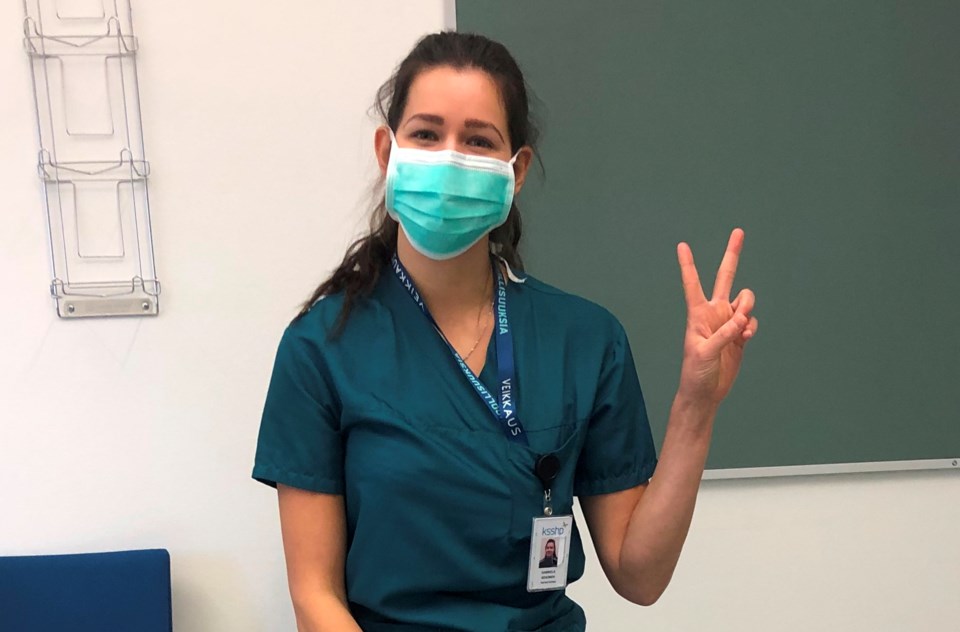B.C. announced $12 million in funding Tuesday to help speed up the process and reduce the costs to license internationally educated nurses to work in the province.
B.C. Health Minister Adrian Dix said the current process is complex, costly and lengthy, a situation that “is no longer acceptable.”
Despite an increase in nurse-training spots and other initiatives, demand for nurses continues to outstrip supply, he said.
“We need more nurses now,” said Dix. “We need more nurses in five years.”
About 700 internationally educated nurses and return-to-practice health-care workers are referred to the Nursing Community Assessment Service for assessment annually, with the majority being nurses educated outside Canada.
Registration and licensing of internationally educated nurses can take 18 months to two years or more.
It involves documentation from multiple organizations and thousands of dollars in fees for assessments, applications and upgrading through various regulators, including the National Nursing Assessment Services and the B.C. College of Nurses and Midwives.
The new funding includes $1.2 million to streamline a provincial system, replacing it with a “triple-track assessment process,” using computer-based exams and simulation labs to concurrently test skills for working as health-care assistant, licensed practical nurse and registered nurse. The process replaces individual tests.
The simultaneous assessments aim to reduce the process to two hours from 18 hours and increase the number of people who can be assessed, the Health Ministry said.
The $12-million pot also includes $9 million in bursaries for 1,500 nurses educated outside Canada to help them pay for fees and travel required in the application process. The amounts range from $1,500 to $16,000. The bursary program will initially be focused on those already living in the province.
As well, $2 million will go to new nurse-navigator positions to help internationally educated nurses find their way through the assessment and licensing process, as well as enhanced recruitment tools through Health Match B.C., including a new centralized recruitment website.
The initiative is a collaboration between the province, the British Columbia College of Nurses and Midwives, the Nursing Community Assessment Service, and Health Match B.C.
Gabriele Kosonen, 27, a Canadian citizen of Indigenous heritage who earned her nursing degree in Finland, where she worked as a registered nurse, applauded the news.
Kosonen, who has been living with her grandparents in Comox, began her applications in November 2020 and is only now headed into the provincial assessments stage that precedes the national assessment. “I’m just waiting for my referral to do the assessments, the really expensive ones, the $3,000 ones, which would also require a ton of travel to Vancouver,” said Kosonen.
Eighteen months into applying to work as a nurse in B.C., Kosonen remains unemployed. Among the expenses she’s incurred was a $400 English test, despite English being her mother tongue.
“I was prepared for it to be difficult, but I never would have imagined this,” said Kosonen. “I kind of thought that the nursing shortage would speed my case along, because I’m like the perfect applicant. The only sin that I have is being educated in Finland and not Canada.”
If not for savings, Canadian citizenship and a place to stay with her grandparents, Kosonen doesn’t know if she would have hung on. “My patience is running thin, and I won’t lie and say that I haven’t considered just switching professions because it just feels like too much work to be able to do a job that I’m already qualified to do,” said Kosonen, who wonders if the new streamlining and bursaries will come in time to help her
Dix said the streamlining will begin in May and bursary inquiries can start immediately.
Nursing Community Assessment Service will launch the triple-track pilot next month, while the B.C. College of Nurses and Midwives will produce a single application and assessment referral for multiple nursing designations. Health Match B.C.’s new website will launch next month also. The college anticipates it will implement a pilot pathway for internationally educated nurses to further streamline processes in the fall.
The B.C. Care Providers Association president Terry Lake applauded the government’s move, saying removing financial barriers and streamlining the assessment process for internationally educated nurses has been a key goal of the organization’s advocacy in recent years.
Dix says B.C.’s supply of nurses is growing faster than those in other jurisdictions in Canada, but increasing demand is outstripping that growth.
Between 2017 and 2020, the number of registered nurses providing publicly funded health services increased by 2,259 or six per cent, while the number of licensed practical nurses increased by 1,141 or 12 per cent, according to the Health Ministry.
In the 2021 provincial budget, $96 million over three years was earmarked to support training for health-sector workers, including 602 new seats in nursing, on top of the approximately 2,000 existing seats in nursing programs at public post-secondary institutions.
• To comment on this article, write a letter to the editor: [email protected]

